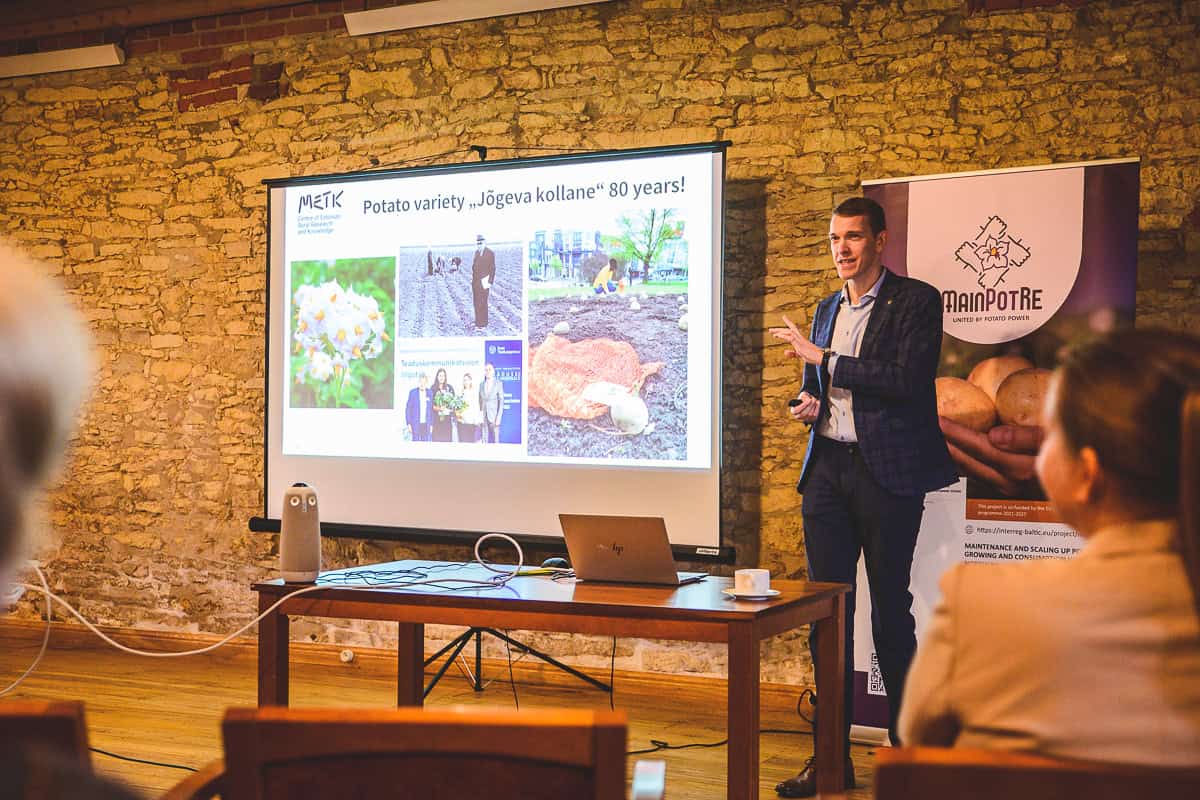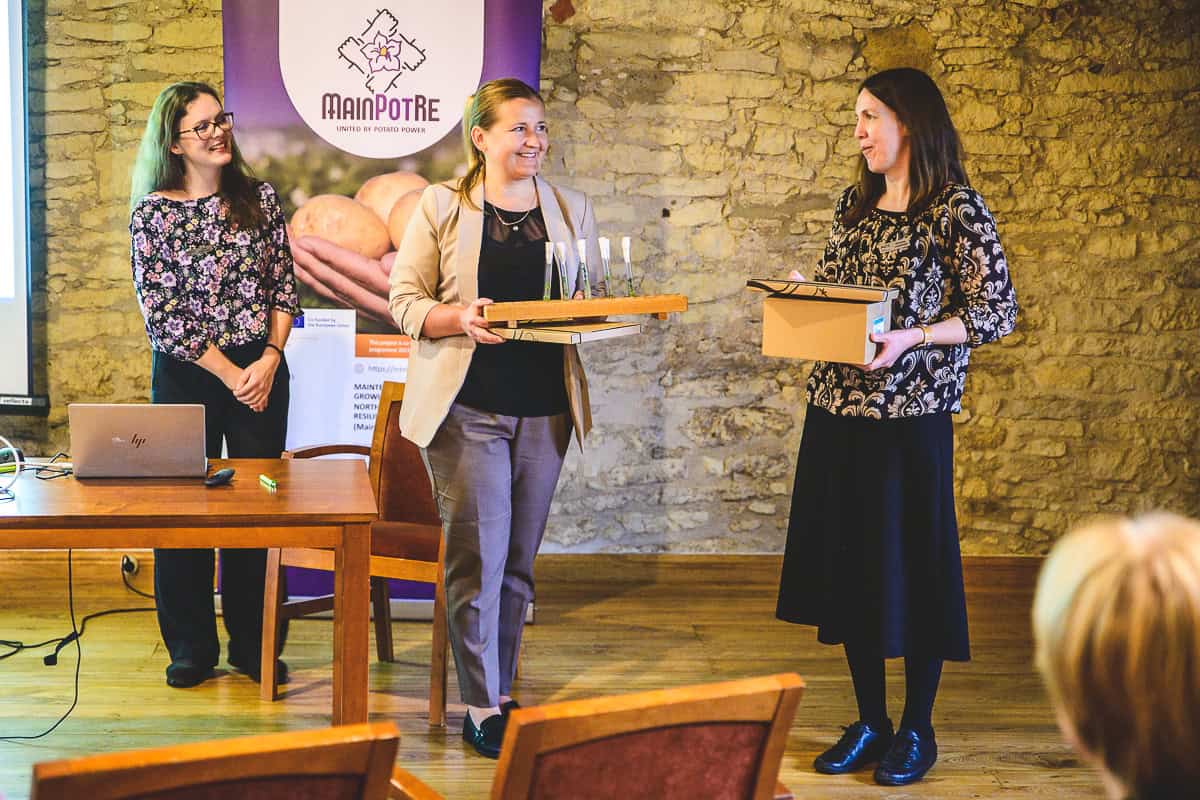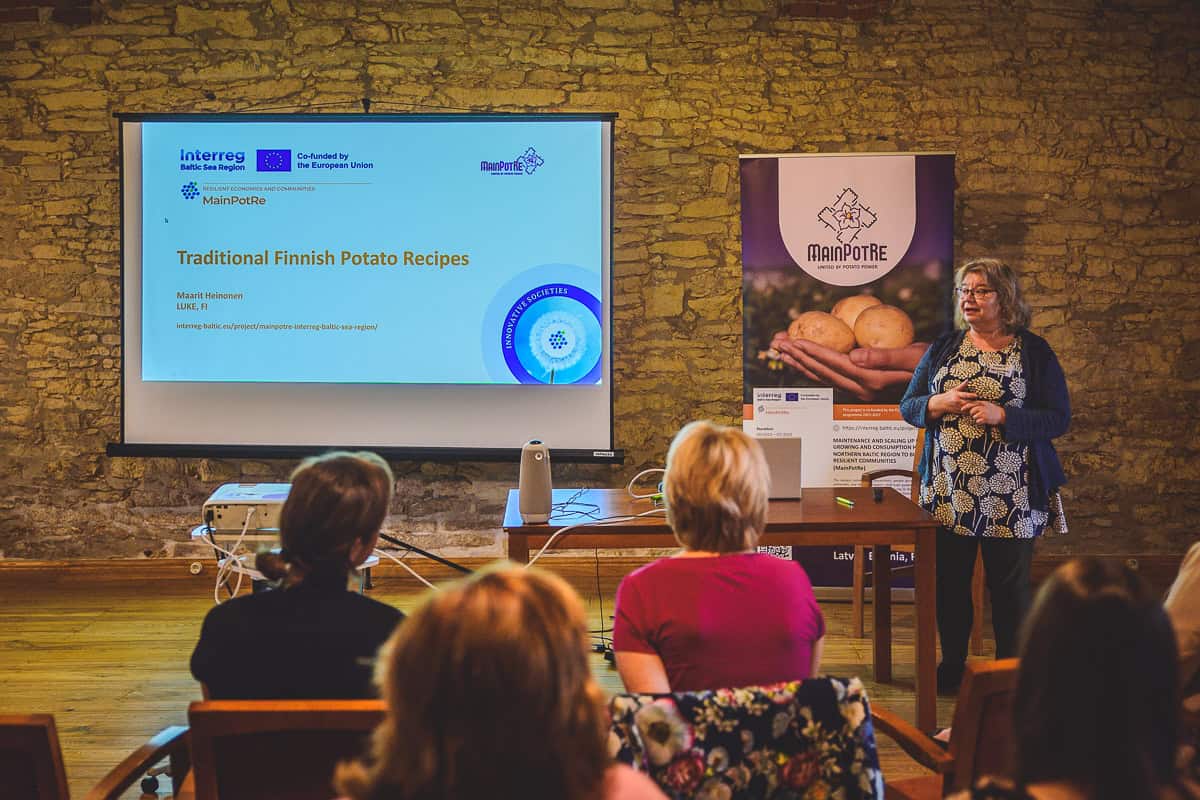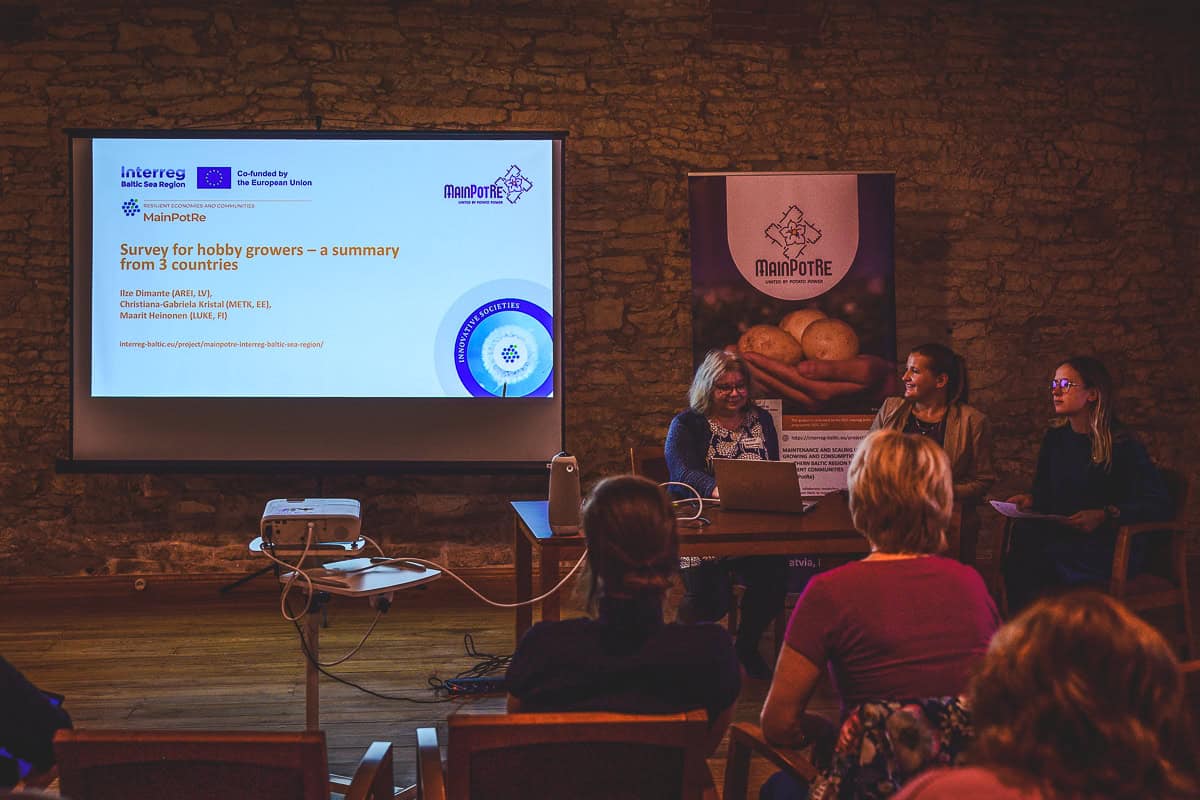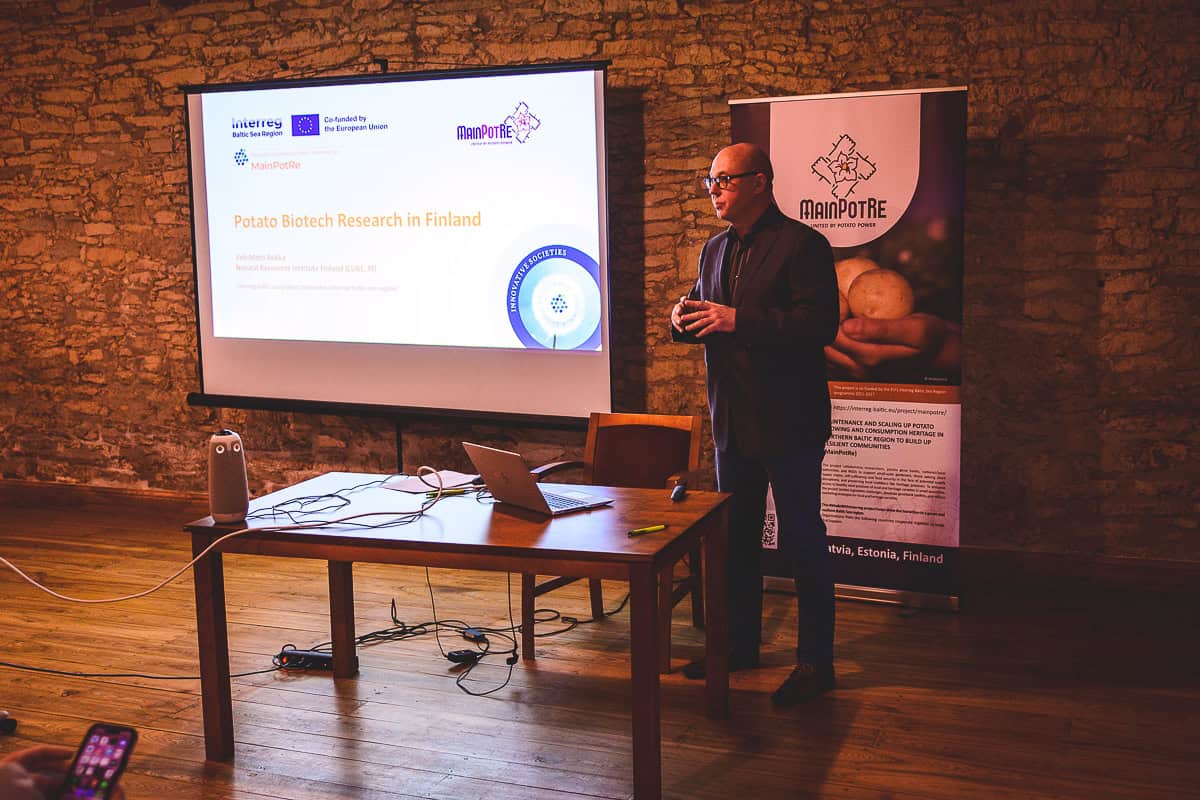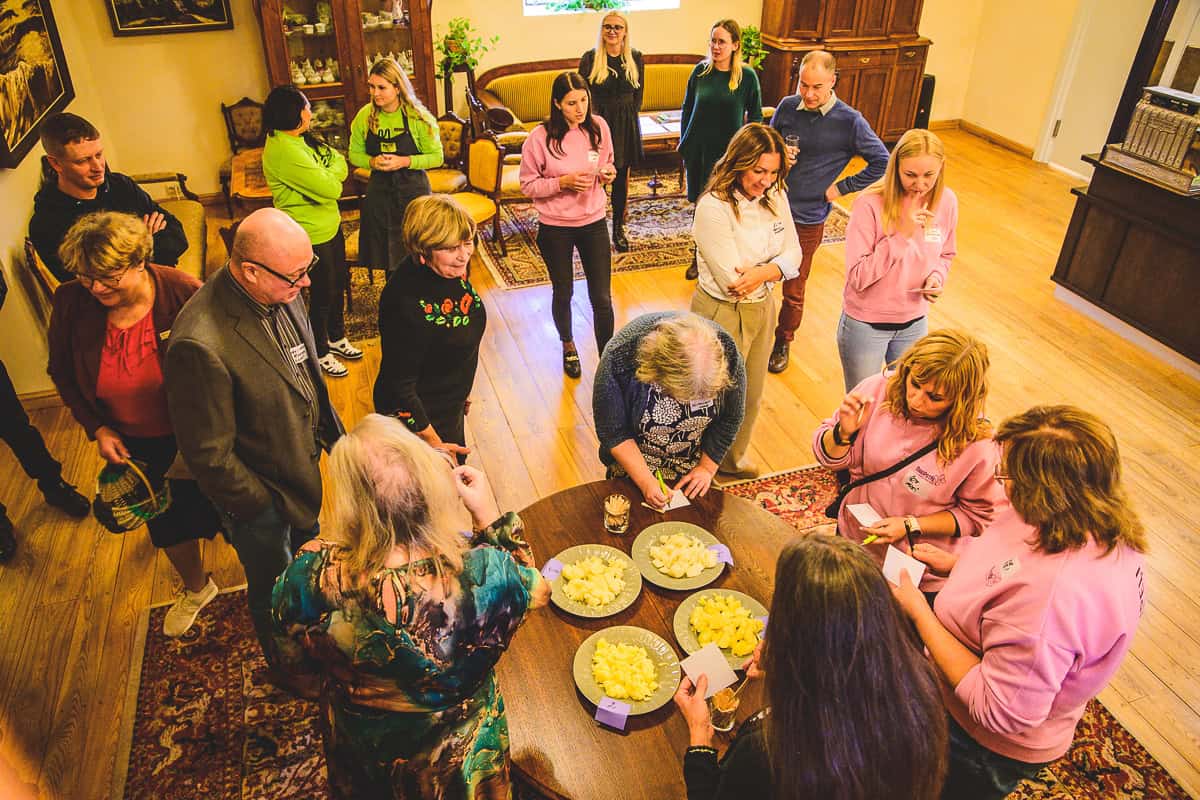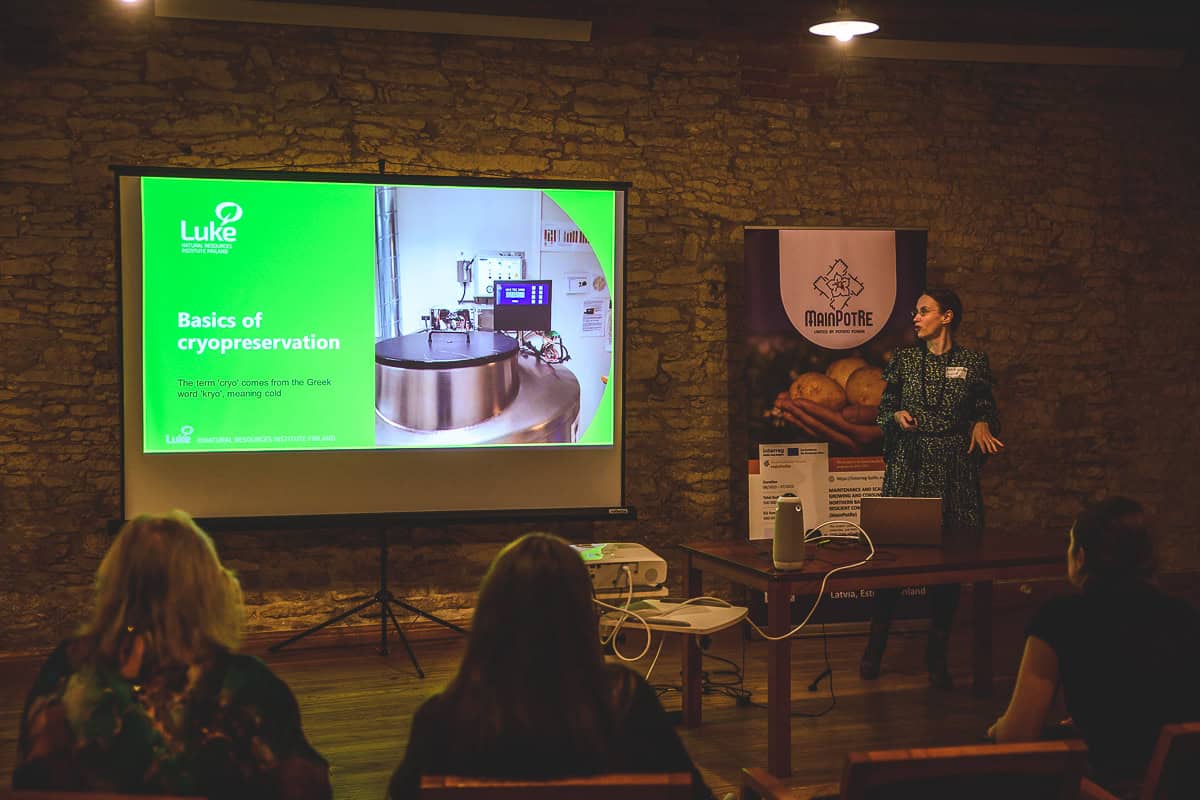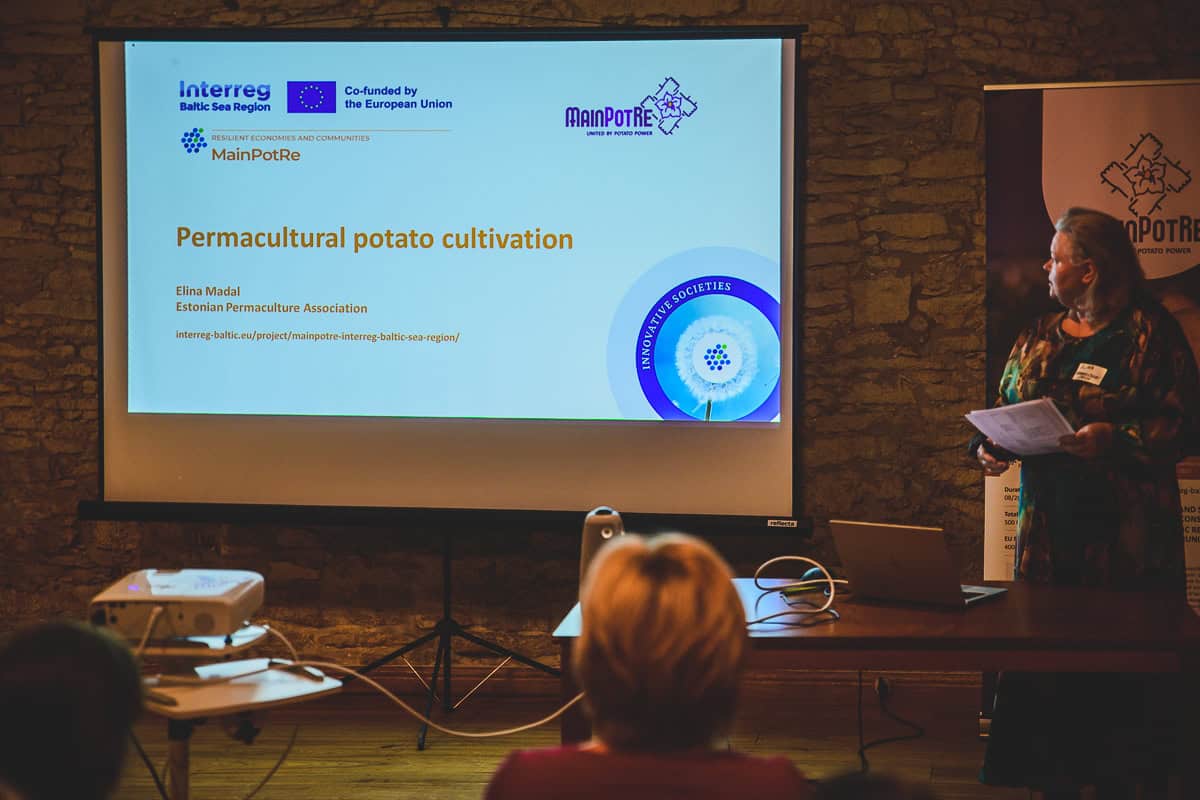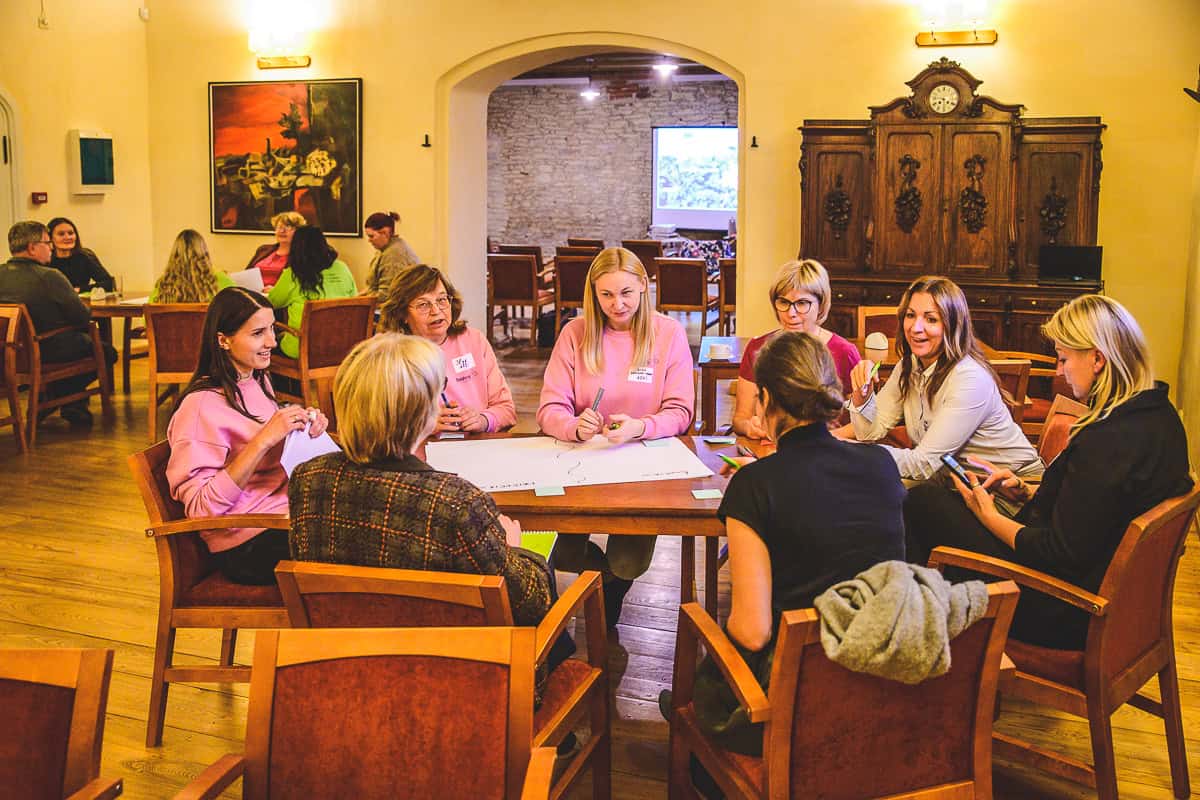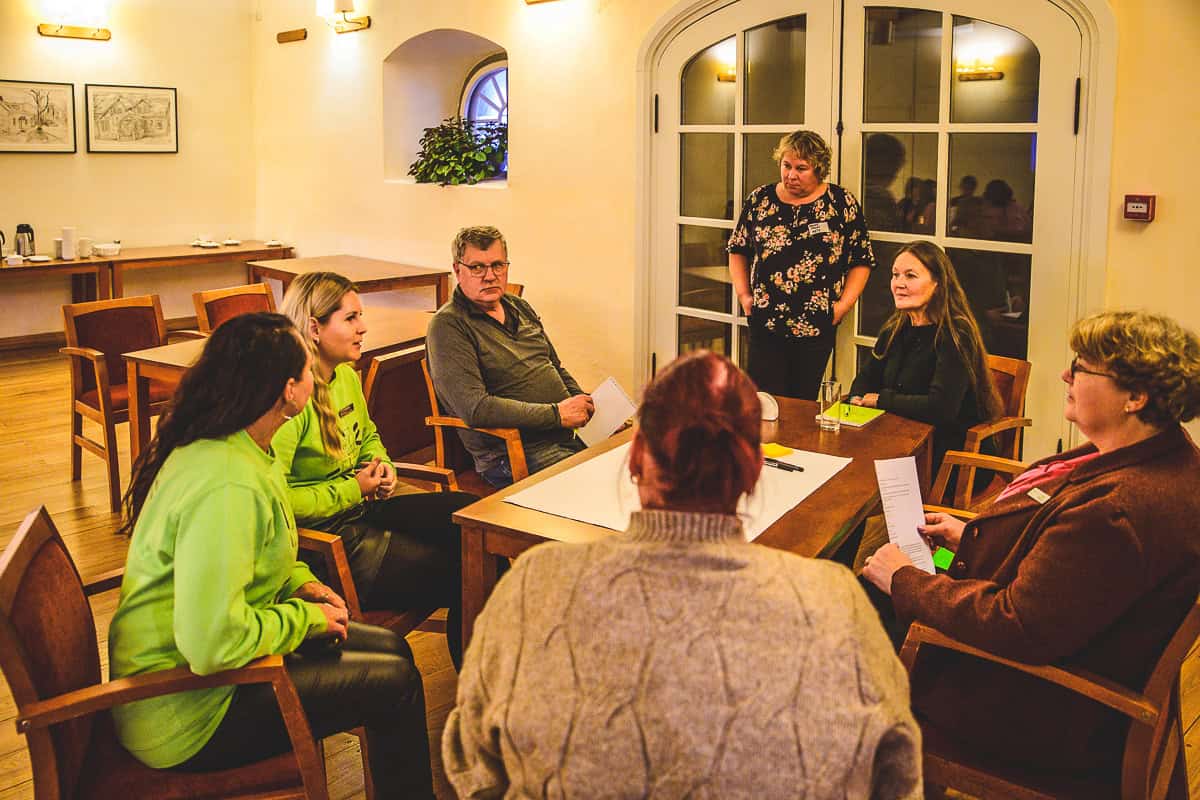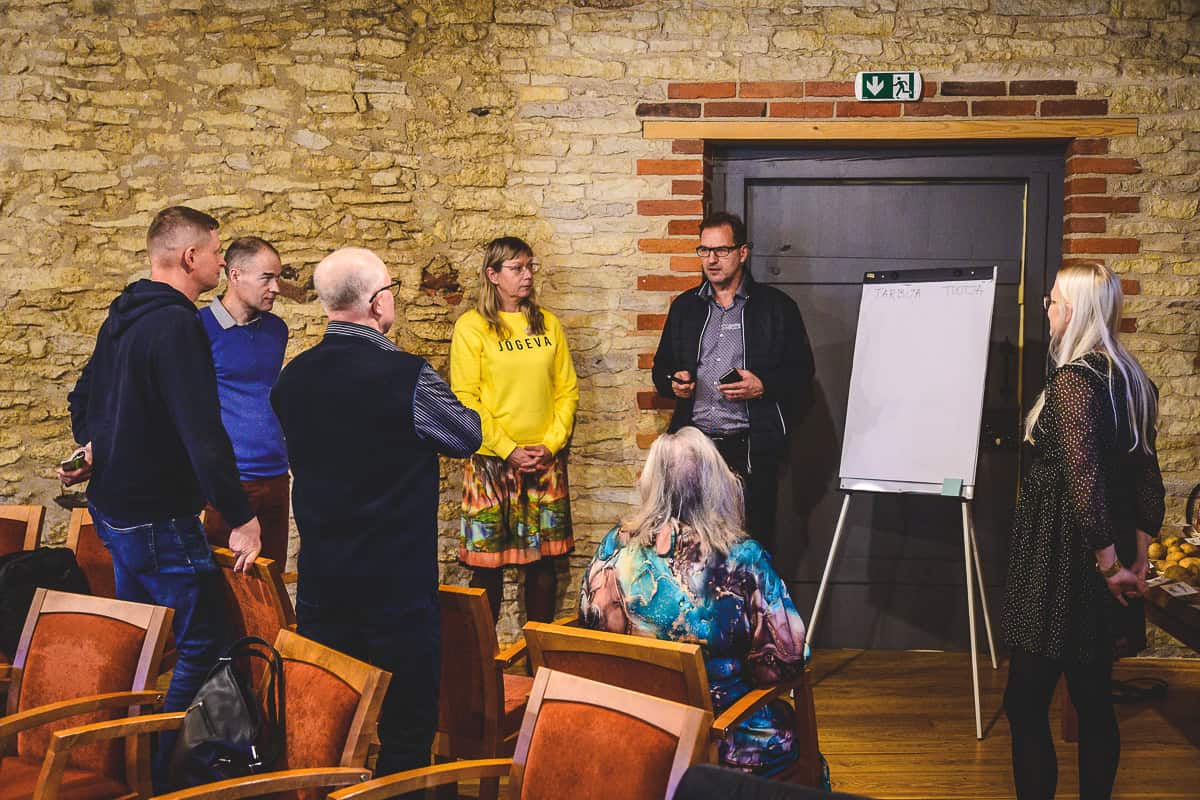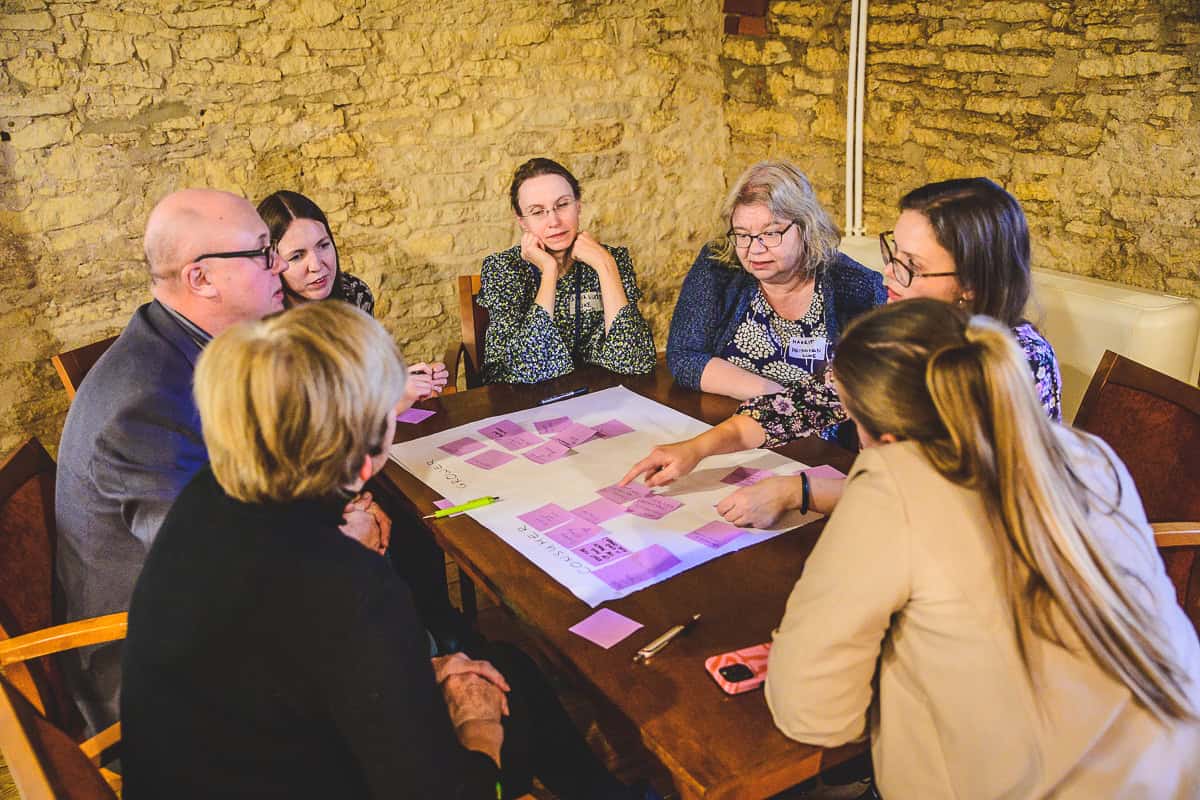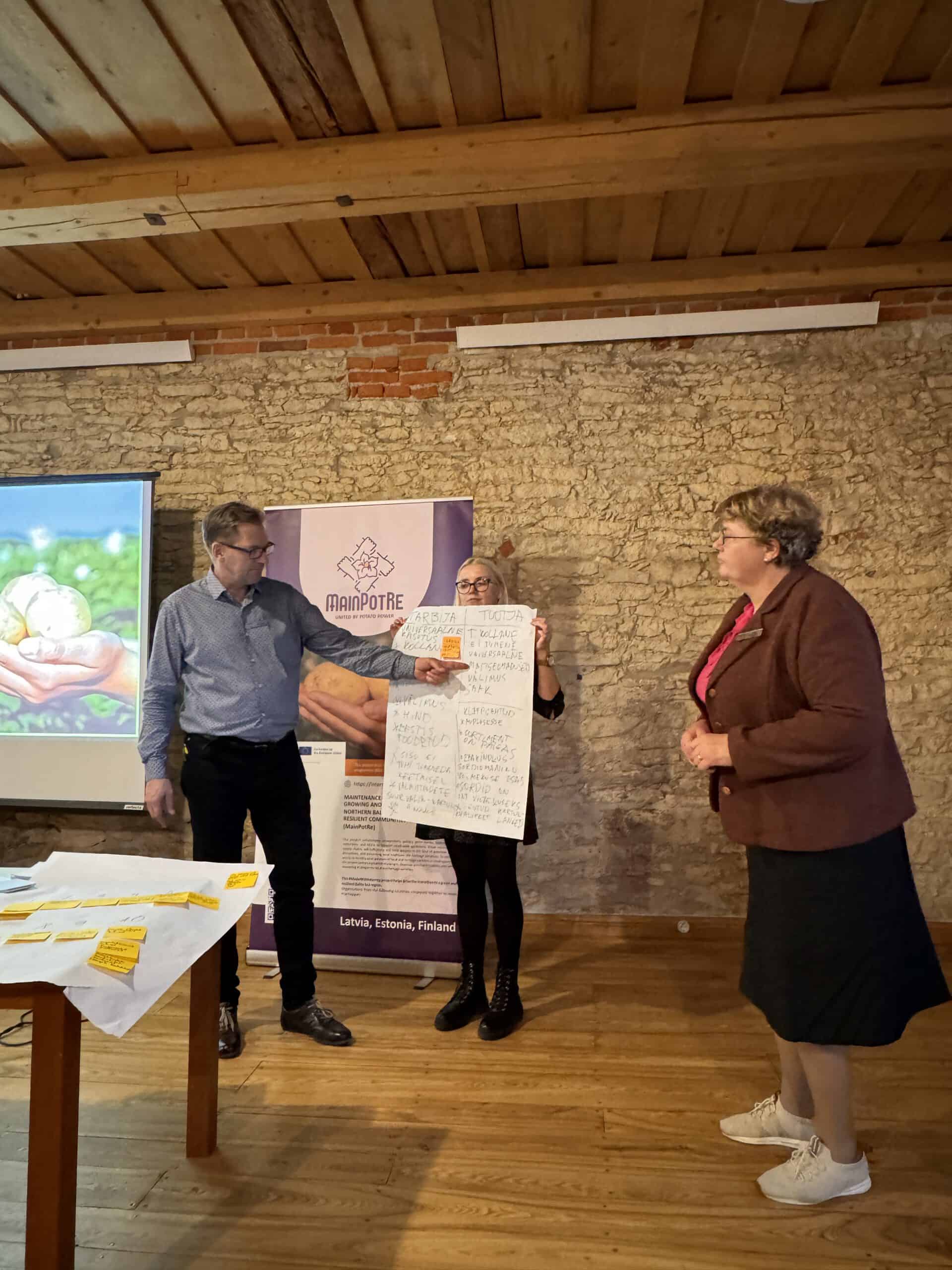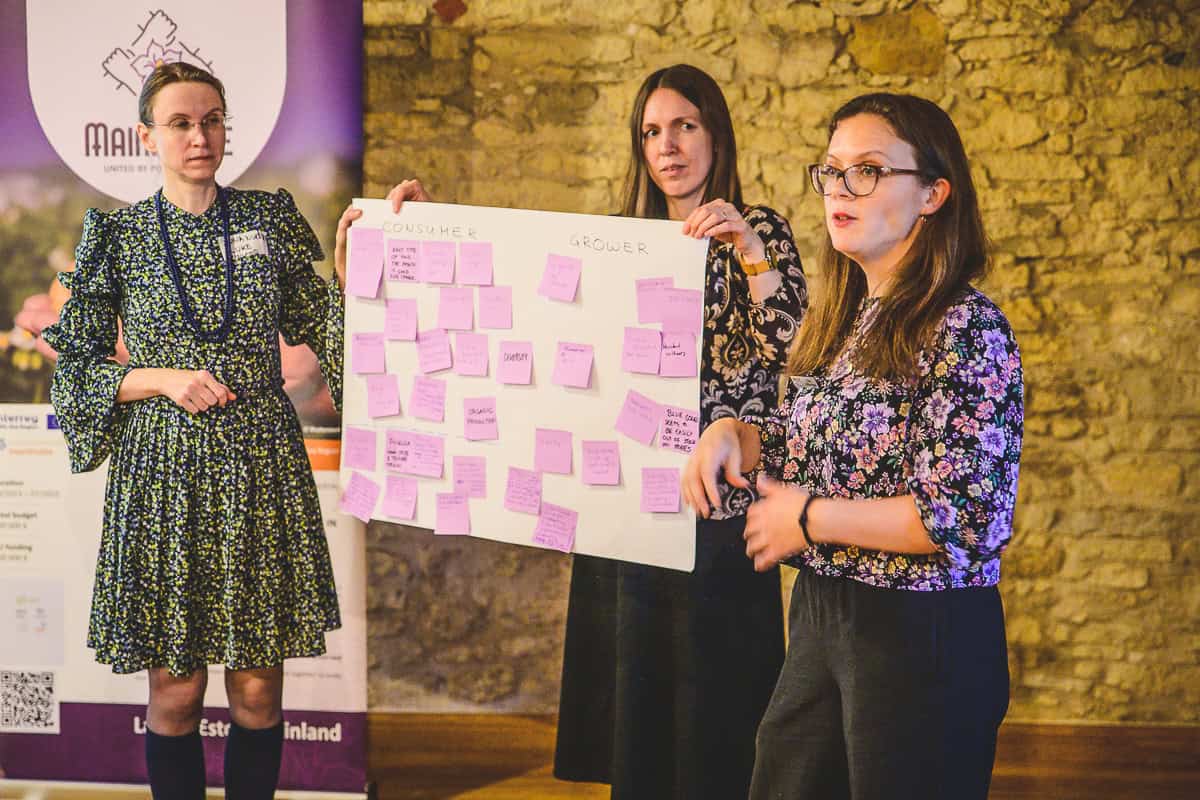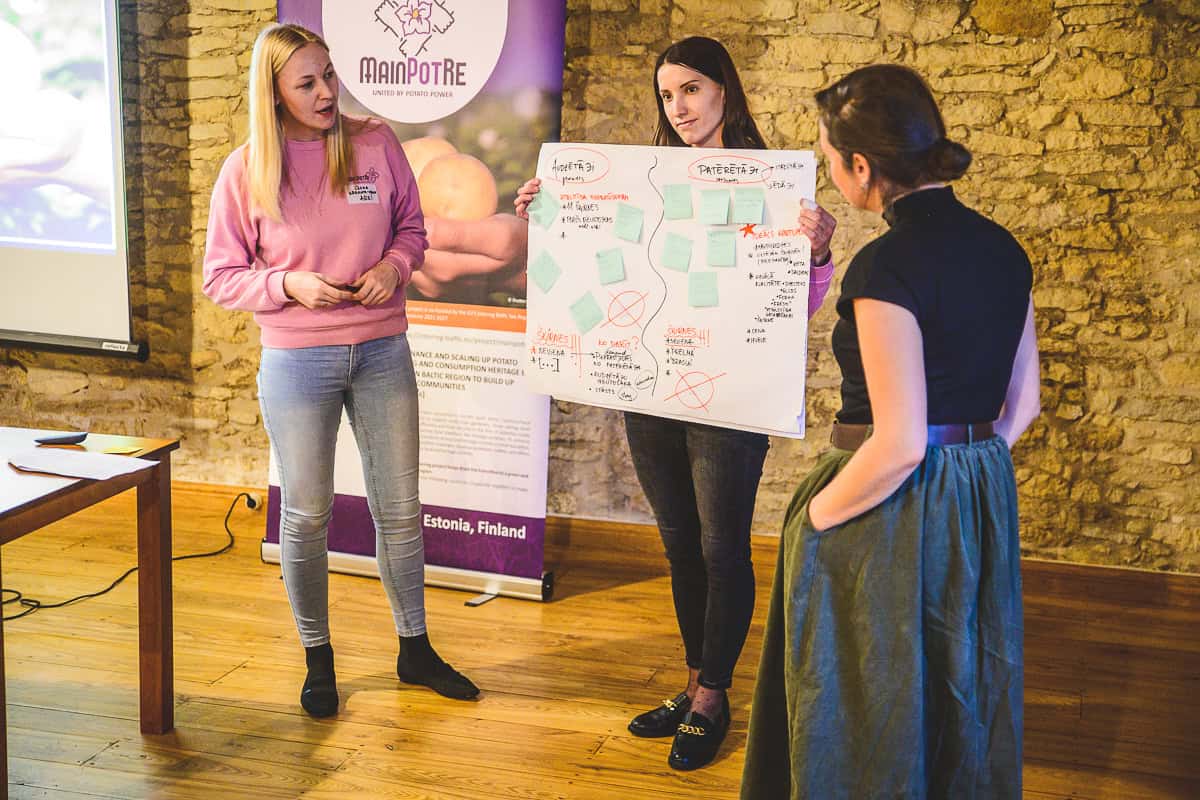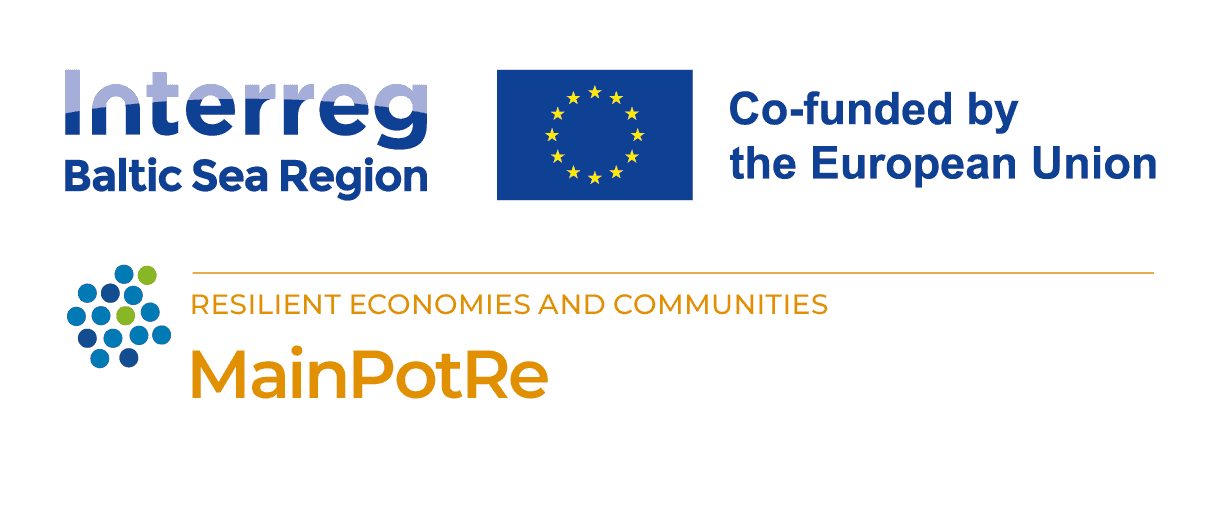
Sharing solutions: potato enthusiasts - lovers, growers and researchers from Finland, Latvia, and Estonia collaborate for community resilience and food security in the region
20 November 2024
In the old Pajusi manor, Põltsamaa municipality, the major topic for two days was potatoes—their place in national security and the importance and role of using local varieties in shortening supply chains, boosting the local economy, research, and plant breeding, as well as in building resilient and self-sufficient communities. The first day was for discussions between project partners and associated partners on the work progress and plans. On the second day, potato growers, Jõgeva municipality development experts, and other potato enthusiasts joined.
The seminar began with a presentation by Marko Kass, Deputy Director of Science at METK (Centre of Estonian Rural Research and Knowledge), who highlighted the importance of potatoes for food security and their place in METK’s research and development activities. He also presented the activities for the 80th anniversary of the famous ‘Jõgeva kollane’ variety, which took place some years ago and sparked interest all around Estonia.
After the opening of the seminar, the long-standing cooperation between Latvian and Estonian potato scientists reached a new milestone. Estonian and Latvian genebanks exchanged potato safety duplicates for the first time to ensure the preservation of the potato varieties.
The ceremonial exchange was followed by many interesting presentations. Ülle Jukk from Jõgeva Cooperation Chamber presented the history of potato farming and starch production in Pajusi, the village where the event took place. The starch production started in 1964, and over 50 tons of potatoes were processed daily. Maarit Heinonen from LUKE (Natural Resources Institute, Finland) continued by introducing Finnish traditional potato recipes. As a result of project activities, LUKE compiled a booklet with 30 old Finnish potato recipes from cookbooks and household magazines dating back to the beginning of the 20th century. It is amazing how wide the spectrum of potato dishes is, from sweet to savoury.
Later, Ilze Dimante (AREI – Institute of Agricultural Resources and Economics), Maarit Heinonen (LUKE), and Christiana-Gabriela Kristal (METK) compared the potato consumption and growing habits in Latvia, Finland, and Estonia, using the results of the survey for hobby growers that was conducted in each country in 2024. It was encouraging to hear that most respondents knew the variety they eat or grow in all countries. We now know that taste is the main criterion for choosing a variety. The survey also identified some significant differences. For example, in Estonia and Latvia, hobby growers’ preferred source of seed potatoes are tubers from the previous year’s yield, whereas, in Finland, hobby growers mainly buy certified seed potatoes from the shops. Survey results also hinted at which seed potato package sizes people want. In Estonia and Latvia, the most popular were 5 and 10 kg packages, while in Finland a combo of different sizes might be a way to go.
We continued with research and development activities in Finland. First, Veli-Matti Rokka (LUKE) gave a presentation on potato biotech research in Finland. With the continuously increasing world population, food security remains one of the key topics. LUKE has been working on numerous projects that help ensure food security by helping developing countries establish more resilient production systems. He also talked about different techniques in potato breeding that could be used to bring better results, such as genome editing, which can help ensure yields in changing climate conditions. Next, Anna Nukari from LUKE introduced cryopreservation, which helps maintain the PGR collections space efficiently and safeguard accessions from plant pathogens and pests with relatively low maintenance costs and reduced risks.
How to get people to eat and grow local potato varieties? This was the question we asked when we led participants to group discussions. The results of the discussions gave a good overview of what consumers and producers value about potatoes.
Growing potatoes traditionally is only one way, but there are several others! This is why Elina Madal from the Estonian Permaculture Association introduced permacultural potato cultivation. She showed how unwashed lamb wool can be used as a good mulch for potatoes, as it helps to hold moisture and protect from weeds.
Last but not least, a presentation by project leader Ilze Dimante (AREI). If all the work is done, it is time to celebrate! Ilze’s presentation focused on different ways to celebrate potatoes; only be creative. In Latvia, they really know how to value the superfood potato!
During the seminar, Terje Tähtjärv and the potato breeding group from METK conducted two potato degustations, where participants had the chance to taste and give points to potatoes in a blind-tasting setting. At the end of the seminar, the “winner potato “was announced. The old variety’ Jõgeva kollane’ won, but one new Estonian potential variety closely followed. So we think it is worth waiting for this new variety!
Text: Christiana-Gabriela Kristal
